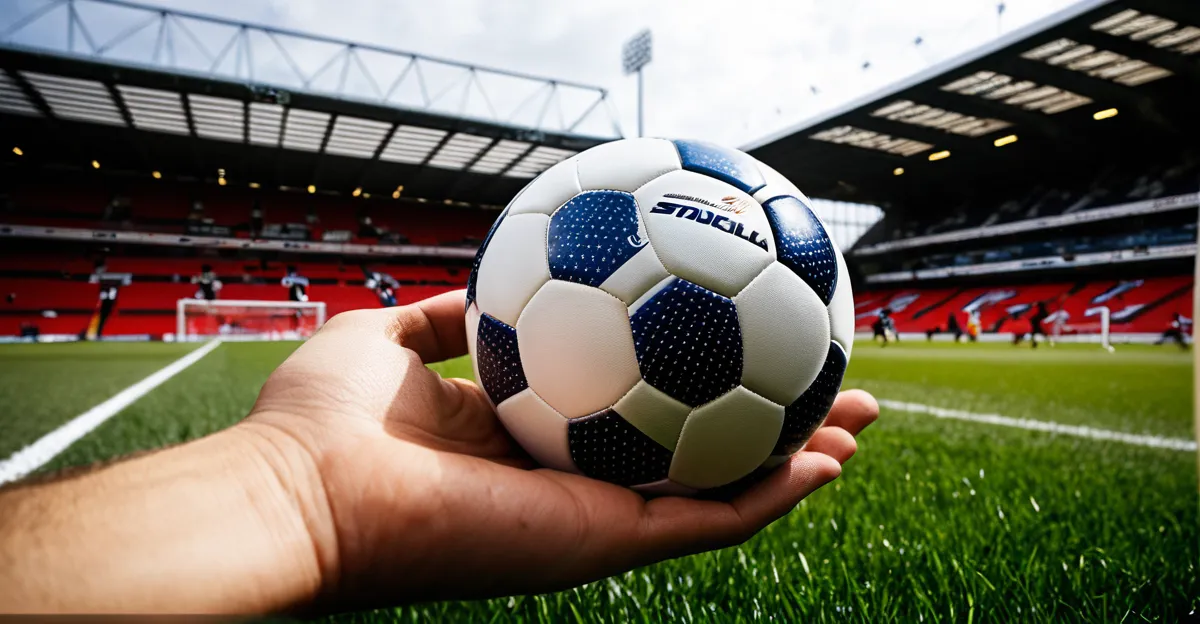Historical Overview of Sports in the UK
In the rich tapestry of the UK’s historical sports context, sports have played pivotal roles. The evolution of sports within this region reveals a fascinating journey from local pastimes to organized national sports, deeply ingraining themselves in the fabric of UK society.
Early Origins of Sports in the UK
The origins of many sports trace back to the early medieval period, where they were primarily informal, serving as local pastimes providing physical exercise and community entertainment. Sports like soccer, which evolved from a chaotic village game, showcased early community spirit and rivalry. These early sports were often unregulated, leading to their diverse forms across the UK.
In the same genre : How Does UK Sports Culture Influence Community Development?
Major Historical Milestones
Several historical milestones marked the progression and national significance of UK sports. For instance, the establishment of formal governing bodies like The Football Association in 1863 represented a turning point in standardizing rules and regulations, enhancing the appeal and competitiveness of sports like soccer. The emergence of iconic sports venues, such as Wimbledon for tennis, underscored the significance of these events in shaping the UK’s national identity.
Evolution of Sports Governance and Organization
Over the centuries, the UK witnessed the structured evolution of sports governance and organization, reflecting broader societal changes. The creation of national leagues and international competitions, such as the FA Cup and the Six Nations in rugby, highlighted the growth of sports from local to global stages. These developments not only increased viewership but also fostered a sense of national pride and solidarity, reinforcing sports as essential elements of British culture.
Also read : How Does Hosting International Sports Events Impact the UK’s Cultural Influence?
Key Sports Defining the UK Identity
In the landscape of UK sports, soccer, rugby, and cricket stand out as pillars of national identity, each contributing uniquely to the cultural fabric.
Soccer and Its Cultural Impact
Soccer, known globally as football, commands a reverential status in the UK. Emerging from modest beginnings, it transcended local communities to become a unifying force. Today, football is deeply woven into British culture, with the Premier League epitomizing its widespread appeal. Football clubs, often steeped in traditions, symbolize local pride and foster an enduring sense of belonging. Iconic matches continue to captivate global audiences, amplifying its cultural resonance.
Rugby’s Role in National Identity
Rugby, with its roots deeply embedded in UK history, plays a crucial role in shaping national identity. From school playing fields to international arenas, rugby’s ethos of teamwork and respect resonates through society. The Six Nations Championship epitomizes fierce rivalries, galvanizing national spirit. Rugby’s tradition of honoring both victory and camaraderie embodies values cherished by British society, reinforcing its place as a cornerstone of community and national pride.
The Significance of Cricket in British Culture
Cricket, often regarded as a quintessentially British sport, encapsulates a rich historical narrative and global influence. The sport reflects not only on-field skill but also embodies principles like fair play and sportsmanship. Events such as The Ashes have left an indelible mark on public consciousness, offering shared experiences that unite nations. Cricket’s legacy persists in cultivating community pride and perpetuating time-honored traditions within British culture.
Regional Sports Variations and Their Local Identities
The United Kingdom is home to a diverse array of regional sports, each reflecting the unique local identity and cultural distinctions of its area. Across the UK, various sports have gained traction in specific regions due to local traditions and preferences. For instance, shinty, a sport similar to hockey, is particularly popular in the Scottish Highlands, mirroring the region’s ancient Celtic heritage. In Cornwall, Cornish wrestling and gig rowing epitomize local traditions, linking the community with its rich maritime history.
Aside from showcasing cultural distinctions, these regional sports also foster a sense of local pride and community. They not only serve as entertainment but also as a means for local populations to connect with their heritage and each other. Moreover, the rivalries inherent in regional sports fuel national pride by celebrating local achievements on a broader stage. When regions compete, it stirs communal excitement and amplifies regional folklore.
Regional sports also act as cultural ambassadors in national and international arenas, highlighting the UK’s vibrant sporting landscape. The diversity of these sports exemplifies the UK’s multifaceted identity and emphasizes how local practices contribute significantly to the national sporting narrative. By encouraging participation and preserving unique ways of competition, regional sports play a vital role in maintaining cultural heritage and fostering community solidarity.
Major Sporting Events and Their National Significance
In the United Kingdom, sporting events have evolved into more than just competitive gatherings; they have become important aspects of national consciousness. These events serve as a unifying force, bringing together diverse communities under a common banner of enthusiasm and pride.
Overview of Significant Sporting Events
The UK hosts a plethora of significant sporting events that impact both the national identity and international perceptions. These include prestigious football tournaments like the FA Cup, the Premier League, and notable occasions such as the historic boat race between Oxford and Cambridge. Additionally, the UK has been a proud host of events like the Commonwealth Games and the Olympics, amplifying its presence on the global athletics stage. Each of these occasions draws substantial attention and participation, fostering widespread national celebration.
Case Studies: The Olympics and Football Tournaments
Case studies of major events such as the Olympics and football competitions provide insightful reflections on their profound effect on national identity. Hosting the Olympics is not merely a test of athletic prowess; it is a showcase of national capacity, pride, and unity. The London 2012 Olympics, for example, demonstrated the UK’s organisational capabilities and highlighted its cultural richness, leaving a legacy of improved infrastructure and sporting enthusiasm.
Football tournaments like the FIFA World Cup and the UEFA European Championship act as national unifiers, giving rise to fervent displays of national colors and anthem singing, thus fortifying a sense of belonging and community. The excitement around these events also penetrates media, driving collective engagement and a shared national dialogue.
The Intersection of Sports, Media, and National Celebration
The interplay between sports, media, and national celebration cannot be understated. Media coverage of these events extends far beyond the games themselves, with narratives built around player stories, national triumphs, and sporting rivalries. This coverage magnifies the sense of occasion, making sporting events a pivotal part of cultural celebrations within the UK.
Through televised broadcasts, social media buzz, and public screenings, these events foster a sense of national unity that transcends socio-economic and regional divides. Sporting events thus play a crucial role in shaping how the nation is perceived internationally and how it views itself, reinforcing a cohesive national identity.
Social Implications of Sports on National Identity
Sports in the United Kingdom do much more than entertain; they foster social cohesion by bringing communities together under a shared passion. Across the UK, sports serve as a platform for creating community identity, where shared victories and losses unite groups, fostering a sense of belonging. Through local clubs and national teams, sports connect diverse demographics and provide a common ground for social interaction.
Sports and Society
Sports deeply influence societal issues, often acting as a mirror reflecting broader social dynamics. Whether through initiatives to promote equality and diversity or by addressing grassroots issues, sports have been pivotal in driving social change. Many sports programs aim to engage underrepresented communities, offering opportunities for participation and empowerment. These initiatives underline how sports can transcend the field, making significant contributions to public policies around health, inclusion, and youth engagement.
The Relationship Between Sports and National Identity
Experts suggest that the intertwining of sports with national identity is profound, where sporting successes or challenges are felt on a national level, influencing mood and social discourse. As an expert states, “sports act as a symbol of national resilience and pride,” illustrating their role in strengthening national identity. These perspectives highlight how integral sports are in defining what it means to be part of the UK, echoing themes of unity and collective identity.
Through these lenses, it becomes evident that sports are more than just games—they are crucial vehicles of identity formation, reflecting and shaping societal values and national character.
Statistics and Analysis
Within the realm of UK sports, statistical analysis and cultural insights provide valuable perspectives on fan engagement and economic repercussions. Current trends indicate diverse participation rates across various demographics, showcasing how integral sports are to British culture.
Current Trends in Sports Participation
Participation in sports varies significantly across the UK, reflecting societal changes and preferences. While traditional sports like soccer maintain robust popularity, emerging sports are also gaining traction among younger demographics. Government and private initiatives focus on increasing access and participation, promoting sports as a vehicle for health and community cohesion.
Economic Impact of Sports in the UK
The economic impact of sports is substantial, as evidenced by contributions to both national and local economies. Major sporting events generate significant revenue, boost tourism, and create jobs, while local clubs contribute to economic vitality through grassroots activities and community engagement. The ripple effects of sports investments highlight their role in economic development.
Demographics of Sports Viewership
Fan engagement continues to evolve, influenced by technological advancements and shifting social norms. Diverse demographics contribute to varying viewership patterns, with digital platforms broadening accessibility and reach. This shift underscores the changing landscape of sports consumption, where traditional views are supplemented by online communities and interactive experiences, enriching the connection between fans and their beloved sports.
Conclusion
In examining the relationship between sports and national identity in the UK, it becomes evident that sports are deeply intertwined with the nation’s cultural fabric. The progression of sports, from their historic roots to their current global stature, illustrates their evolving role in shaping a cohesive identity. As sports continue to foster social cohesion, they also reflect and influence broader societal issues, contributing significantly to public policies around health and inclusion.
Looking forward, the implications for future identity reveal a dynamic landscape where sports serve as both a mirror and a moulder of national consciousness. Continued exploration and analysis will be vital to understanding how sports further evolve in their role of maintaining and strengthening community ties within the UK. This ongoing research will ensure that the patriotic spirit and cultural richness embedded in sports remain steadfast, enhancing their significance in both regional and national realms.

